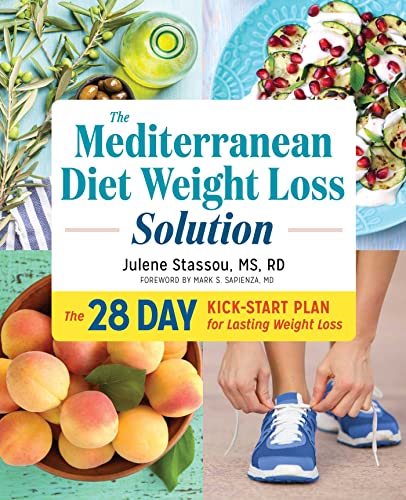The Mediterranean Diet: A Comprehensive Guide
Share this post:
In a world filled with diet trends and fads, the Mediterranean diet stands out as a timeless and proven approach to healthy living. Its origins trace back to the coastal regions of Greece, Italy, and Spain, where people have savored its benefits for centuries. This comprehensive guide will walk you through the principles, benefits, and practical tips for adopting the Mediterranean diet into your lifestyle.
What Is the Mediterranean Diet?
The Mediterranean diet is not just a diet; it’s a way of life. It’s based on the traditional eating patterns of Mediterranean countries and emphasizes whole foods, healthy low-fat, and a balanced approach to nutrition.
The mediterranean-style diet is a lifestyle that promotes health and wellbeing. It is not a quick fix or a fad diet that promises immediate results. Rather, it is a sustainable approach to nutrition that encourages individuals to make healthier choices on a daily basis. The diet focuses on whole, nutrient-dense foods like fruits, vegetables, whole grains, legumes, nuts, and seeds, while limiting processed and refined foods.
Adopting the Mediterranean diet requires a commitment to cooking and meal planning, as well as a willingness to try new foods. It may take some time to adjust to the new way of eating, but research has shown that the long-term benefits are worth it. The Mediterranean diet has been associated with a reduced or lower risk of chronic diseases like heart disease, stroke, and type 2 diabetes. Additionally, it has been shown to improve overall health markers like cholesterol levels and blood pressure. While the Mediterranean diet may not be for everyone, it is a realistic and attainable lifestyle for those looking to prioritize their health and wellbeing.
Here’s a breakdown of its key components:
1. Abundance of Fruits and Vegetables
One of the fundamental pillars of the Mediterranean diet is the consumption of fresh fruits and vegetables. These nutrient-packed foods provide essential vitamins, minerals, and antioxidants that support overall health.
2. Whole Grains for Sustained Energy
Whole grains like brown rice, whole wheat pasta, and quinoa are staples in this diet. They offer complex carbohydrates that provide lasting energy and fiber for digestive health.
3. Healthy Fats: Olive Oil
Olive oil is the primary source of fat in the Mediterranean diet. It’s rich in monounsaturated fats and antioxidants, which promote heart health and reduce inflammation.
4. Lean Proteins
Protein sources in this diet include lean meats like poultry and fish, as well as plant-based options like beans and nuts. These proteins support muscle growth and repair.
5. Dairy in Moderation
Dairy products are consumed in moderation, with a preference for yogurt and cheese. These provide calcium and probiotics for bone and gut health.
6. Herbs and Spices
Herbs and spices like basil, oregano, and garlic are used liberally to flavor dishes. They not only enhance taste but also offer numerous health benefits.
7. Red Wine in Moderation
Moderate amounts of consumption of red wine is a characteristic feature of this diet. It’s believed to contribute to heart health due to its antioxidants, like resveratrol.
Health Benefits of the Mediterranean Diet
Adopting the Mediterranean diet can have a profound impact on your health and well-being.
Adopting a Mediterranean diet has been shown to reduce the risk of chronic diseases such as heart disease, diabetes, and certain cancers. This is mainly due to the high intake of fruits, vegetables, whole grains, and healthy fats, such as olive oil and nuts, which are all staples of the Mediterranean diet. These foods are rich in antioxidants, vitamins, and minerals, and have been shown to have anti-inflammatory effects on the body. Additionally, the moderate consumption of fish and poultry, as well as limited red meat intake, can also contribute to a healthier lifestyle.
While the Mediterranean diet does not guarantee perfect health, it is a well-balanced and sustainable way of eating that can improve overall health and well-being. It is important to note that the benefits of the Mediterranean diet come from the overall dietary pattern rather than any individual food or nutrient. Incorporating the Mediterranean diet into your lifestyle may require some adjustments, but it is a realistic and enjoyable approach to healthy eating that can have a positive impact on your health for years to come.
Here are some of the benefits:
1. Heart Health
The Mediterranean diet is renowned for its ability to lower the risk of heart disease. The healthy fats in olive oil and omega-3 fatty acids in fish play a significant role in reducing cholesterol levels.
Sample Heart-Healthy Recipe
This menu is a sample of the Mediterranean diet, a healthy eating plan that emphasizes fruits, vegetables, whole grains, and healthy fats. The specific guidelines of the Mediterranean diet vary slightly depending on the country where it’s practiced, but in general, it emphasizes eating foods low in saturated fat and added sugar, while consuming plenty of fiber, omega-3 fatty acids, and monounsaturated fatty acids.
This menu is based on the traditional Mediterranean diet, which emphasizes fruits, vegetables, whole grains, and healthy fats. It features recipes that are low in saturated fat and added sugar, while consuming plenty of fiber, omega-3 fatty acids, and monounsaturated fatty acids.
Servings 4 Note:
For this recipe, you can use 1 pound of store-bought pizza dough.
Ingredients For the tomato sauce:
1 1/2 cup (6 ounces) loosely packed grated Parmesan cheese
2 tablespoons finely chopped fresh basil, parsley, or oregano
For the meatballs:
1 pound lean ground beef
1 cup finely grated Parmesan cheese
2 tablespoons finely chopped fresh basil, parsley, or oregano
For the salad:
1 head of romaine lettuce, cut into bite-size pieces
1/2 cup (6 ounces) pitted Kalamata olives
1/2 cup (6 ounces) loosely packed grated Parmesan cheese
2. Weight Management
Due to its focus on whole foods and portion control, the Mediterranean diet is effective for weight management and maintaining a healthy BMI.
3. Diabetes Prevention
This diet can help prevent and manage type 2 diabetes by regulating blood sugar levels and improving insulin sensitivity.
4. Cognitive Function
Studies suggest that the Mediterranean diet may slow cognitive decline and reduce the risk of neurodegenerative diseases like Alzheimer’s.
5. Longevity
People who follow this diet tend to live longer, healthier lives, thanks to its protective effects against chronic diseases.
Practical Tips for Adopting the Mediterranean Diet
Adopting the Mediterranean diet can be a great way to improve your overall health and well-being. To start, it’s important to focus on incorporating more fruits, vegetables, whole grains, and lean proteins into your meals. You may also want to consider using healthy fats, such as olive oil, in place of less healthy options like butter or margarine.
It’s important to keep in mind that adopting any new dietary habits can be challenging at first. You may need to experiment with different recipes and meal plans to find what works best for you. It’s also okay to make gradual adjustments to your diet over time, rather than trying to completely overhaul your eating habits all at once. Remember, the key to success with the Mediterranean diet is to make sustainable changes that you can stick with over the long-term.
Now that you understand the principles and benefits of the Mediterranean diet, here are some practical tips to follow the mediterranean diet that will help you get started:
1. Embrace Plant-Based Meals
Make fruits, vegetables, and whole grains the centerpieces of your meals. Aim to fill half your plate with these foods. One of the most effective ways to improve your overall health and well-being is to embrace plant-based meals. When we talk about plant-based meals, we mean foods that are derived from fruits, vegetables, and whole grains. These foods are packed with essential nutrients that our bodies need to function properly. By incorporating more plant-based meals into your diet, you can boost your energy levels, improve your digestion, and even lower your risk of developing chronic illnesses such as heart disease and diabetes.
To make plant-based meals a regular part of your diet, start by making small changes. For example, you could try swapping out meat for tofu or tempeh in your stir-fry, or using cashew cream instead of dairy cream in your pasta sauce. You could also experiment with new recipes that feature plant-based ingredients, such as lentil soup or quinoa bowls. Over time, as you become more comfortable with these changes, you can gradually increase the number of plant-based meals you eat each week. By taking this approach, you’ll be able to make sustainable changes to your diet that will have a positive impact on your health and well-being.
2. Choose Healthy Fats
Swap out saturated and trans fats with heart-healthy olive oil and nuts. Use olive oil for cooking and drizzling over salads. Choosing healthy fats is an important aspect of a balanced diet. Saturated and trans fats can increase cholesterol levels and increase the risk of heart disease. One way to make a positive change is to swap out these unhealthy fats with healthier alternatives such as olive oil and nuts.
Olive oil is a versatile and flavorful option for cooking or drizzling over salads. It is high in monounsaturated fats, which can help lower bad cholesterol levels and reduce the risk of heart disease. Nuts, such as almonds and walnuts, are also a great source of healthy fats. They can be added to meals or eaten as a snack for a boost of nutrients and energy. Making small changes like these can lead to significant improvements in overall health and well-being.
3. Prioritize Fish and Lean Proteins
Incorporate fish like salmon, sardines, and trout into your diet at least twice a week. Limit red meat consumption and opt for lean cuts.
When it comes to maintaining a healthy diet, one of the most important things to focus on is incorporating a variety of lean proteins. Not only are these proteins essential for building and repairing muscle tissue, but they also provide a sense of fullness and help regulate blood sugar levels. Fish is an excellent choice for lean protein, especially those varieties that are high in heart-healthy omega-3 fatty acids. Salmon, sardines, and trout are all great options that can be incorporated into your meals at least twice a week. Whether grilled, baked, or broiled, fish is a versatile protein that can be prepared in a variety of ways to suit your taste preferences.
While it’s important to include lean proteins in your diet, it’s equally important to limit your consumption of red meat. While red meat can be a good source of protein and other nutrients, it’s also high in saturated fat and cholesterol, which can lead to a number of health problems if consumed in excess. Instead, opt for lean cuts of meat, such as chicken breast, turkey, or pork loin. When cooking, choose low-fat cooking methods like grilling, baking, or roasting, and avoid frying or breading your meats.
4. Limit Processed Meat or Foods
Reduce your intake of processed foods, sugary drinks, and snacks high in refined sugars. These items are not part of the Mediterranean diet.
Processed foods are convenient and often tasty, but they’re not the healthiest options for our bodies. Limiting processed meat or foods can have a positive impact on our overall health. These food items are often high in unhealthy fats, sodium, and added sugars, which can contribute to weight gain, high blood pressure, and other health issues. Instead, focus on incorporating fresh, whole foods into your diet such as fruits, vegetables, lean proteins, and whole grains. Not only will this help you feel better, but it can also lead to a longer, healthier life.
It’s important to note that cutting out all processed foods completely may be unrealistic for some people. It’s okay to indulge in your favorite snack or treat occasionally, but try to make it a small part of your overall diet. Instead of reaching for a bag of chips or cookies as a daily snack, try swapping it out for some fresh fruit or veggies. Making small changes to your diet can also lead to long-term habits that are healthier for your body. Remember, it’s all about balance and moderation.
5. Enjoy Meals Mindfully
Take your time to savor your meals, and engage in the social aspect of eating plan. This practice promotes a healthy relationship with food.
Enjoying your meals mindfully is a great way to maintain a healthy relationship with food and promote overall well-being. It’s all too easy to scarf down a meal while multitasking or rushing to get to the next thing on your to-do list, but taking the time to truly savor each bite can lead to greater satisfaction and enjoyment.
When you sit down to eat, try to remove any distractions such as your phone or the TV. Take a moment to appreciate the appearance, scent, and flavor of your food. Chew each bite slowly and deliberately, paying attention to the texture and taste. Engage in conversation with those around you, and take breaks between bites to engage in mindful breathing or simply reflect on your surroundings. By enjoying your meals in this way, you’ll not only nourish your body but also cultivate a deeper appreciation for the food you eat.
Conclusion
The Mediterranean diet is more than just a way to lose weight; it’s a blueprint for long-term health and vitality. By prioritizing whole foods, healthy fats, and a balanced lifestyle, you can reap the numerous benefits it offers. So, why not embark on a journey to better health by embracing the Mediterranean way of eating?
Frequently Asked Questions (FAQs)
Is the Mediterranean diet suitable for vegetarians and vegans?
- Yes, the Mediterranean diet can be adapted to vegetarian and vegan lifestyles by emphasizing plant-based foods and protein sources like legumes and tofu.
Are there any age restrictions for following this diet?
- No, the Mediterranean diet is suitable for people of all ages, from children to seniors, and can be adapted to meet individual dietary needs.
Can I still enjoy desserts on the Mediterranean diet?
- While desserts are not a primary focus, occasional indulgences are allowed. Opt for fruit-based desserts or small portions of traditional Mediterranean sweets.
How fast can I expect to see results on the Mediterranean diet?
- Results may vary, but many people notice positive changes in energy levels and overall well-being within a few weeks of adopting this diet.
Is red wine necessary, and can I substitute it with something else?
- Red wine is not necessary, and you can omit it if you prefer. It’s included in moderation mainly for its potential heart-healthy benefits, but it’s not a requirement for the diet’s success.
Conclusion
Nutrition is the cornerstone of a healthy life. By understanding the key components of a balanced diet and debunking common myths, you can make informed choices that positively impact your well-being. Remember, there is no one-size-fits-all approach to nutrition – it’s about finding what works best for you and your lifestyle. If you’re looking for personalized guidance on your journey to better health, don’t hesitate to contact me for expert assistance. Together, we can pave the way to a healthier you.







